A good diet is essential for healthy and safe eyes, as well as maintaining an ideal vision. By following a balanced diet rich in nutrients like vitamins A, C, and E, omega-3 fatty acids, and antioxidants, you can promote eye health and reduce the risk of eye-related issues.
In addition, incorporating foods like leafy greens, citrus fruits, colorful vegetables, fish, and nuts can provide the necessary nutrients for optimal eye function and protect against macular degeneration, cataracts, and dry eyes. Therefore, by adopting a healthy diet, you can safeguard your eyes and maintain clear and sharp vision for years to come.
The Importance Of A Healthy Diet For Optimal Vision
Having good eyesight is essential for carrying out everyday tasks and enjoying a high quality of life. It allows us to navigate our surroundings, appreciate the beauty of the world, and connect with others. However, many people take their vision for granted and fail to realize the impact of their diet on eye health. A healthy diet plays a crucial role in maintaining optimal vision and preventing eye diseases.

The Link Between Diet And Eyesight
It may come as a surprise, but the food we consume has a direct impact on our eye health. Research has shown that certain nutrients are vital for maintaining good eyesight and preventing age-related vision problems. By incorporating these nutrients into our diet, we can support the health of our eyes and ensure clear vision.
Understanding The Role Of Nutrition In Maintaining Good Eyesight
Let’s dive deeper into how nutrition plays a role in maintaining good eyesight. Here are some key nutrients and their benefits:
| Nutrient | Benefit |
|---|---|
| Lutein and Zeaxanthin | Protect the eyes from harmful blue light and reduce the risk of developing age-related macular degeneration and cataracts. |
| Vitamin C | Acts as an antioxidant, protecting the eyes from damage caused by free radicals. |
| Vitamin E | Supports eye health by reducing the risk of developing cataracts and age-related macular degeneration. |
| Zinc | Helps the body absorb Vitamin A, an essential nutrient for good vision. |
Ensuring A Balanced Diet For Healthy Eyes
Now that we understand the importance of nutrition for optimal vision, it’s vital to incorporate these eye-friendly nutrients into our diet. Here are some tips to ensure a well-rounded diet that supports healthy eyes:
- Include plenty of leafy green vegetables, such as spinach and kale, that are rich in lutein and zeaxanthin.
- Consume citrus fruits like oranges and strawberries to boost your intake of Vitamin C.
- Include nuts, seeds, and vegetable oils to get an adequate amount of Vitamin E.
- Incorporate zinc-rich foods like meat, poultry, seafood, and whole grains into your meals.
- Stay hydrated by drinking enough water throughout the day to support overall eye health.
By following these dietary guidelines and ensuring a well-balanced and nutritious diet, you can take proactive steps to maintain optimal vision and keep your eyes healthy throughout your life.
Key Nutrients For Healthy Eyes
When it comes to maintaining optimal eye health, a good diet plays a crucial role. By incorporating key nutrients into your meals, you can support your eyes’ overall wellness and reduce the risk of vision problems. Here, we will discuss some essential nutrients that are vital for your eyes:
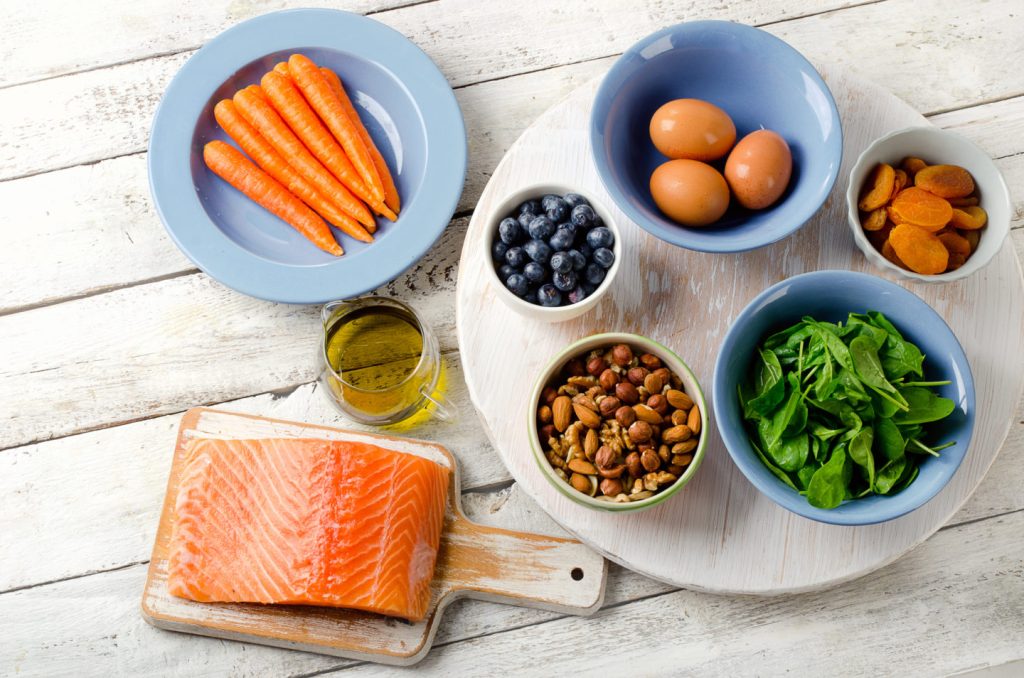
Vitamin A: A Crucial Nutrient For Vision
Vitamin A is an essential nutrient that promotes healthy vision. It helps to maintain the clear cornea, the outermost layer of the eye, and is necessary for good night vision. Vitamin A also contributes to the production of rhodopsin, a light-absorbing protein in the retina that aids in detecting and interpreting light. Including vitamin A-rich foods in your diet can help prevent night blindness and dry eyes.
Omega-3 Fatty Acids: Promoting Eye Health And Preventing Dry Eyes
Omega-3 fatty acids, particularly docosahexaenoic acid (DHA), are known for their numerous health benefits, including their ability to promote eye health. These essential fatty acids are found in high concentrations in the retina and play a crucial role in maintaining retinal function. Additionally, omega-3 fatty acids help prevent dry eyes by reducing inflammation and supporting the production of tears. Include fatty fish like salmon, trout, and sardines in your diet to ensure an adequate intake of omega-3 fatty acids.
Lutein And Zeaxanthin: Protecting Against Age-related Macular Degeneration
Lutein and zeaxanthin are two important antioxidants that accumulate in the macula, the central part of the retina responsible for sharp vision. These antioxidants help protect the eyes from harmful blue light and reduce the risk of age-related macular degeneration (AMD), a leading cause of vision loss in older adults. Leafy green vegetables like spinach and kale are excellent sources of lutein and zeaxanthin, and incorporating them into your daily meals can support your eye health.
Vitamin C And E: Fighting Off Oxidative Stress And Reducing The Risk Of Cataracts
Vitamin C and vitamin E are powerful antioxidants that help fight off oxidative stress, which can damage the cells of the eyes and contribute to various eye conditions. Vitamin C strengthens the blood vessels in the eyes, while vitamin E protects the cells from free radicals. Together, these vitamins reduce the risk of cataracts, a clouding of the lens that can lead to vision impairment. Citrus fruits, berries, nuts, and seeds are excellent sources of vitamin C and E.
Incorporating Vitamin A Into Your Diet
When it comes to maintaining good eye health, incorporating vitamin A into your diet is essential. Vitamin A plays a crucial role in maintaining optimal vision and preventing eye-related issues. In this article, we will explore natural food sources rich in vitamin A and the benefits of beta-carotene in maintaining healthy vision.
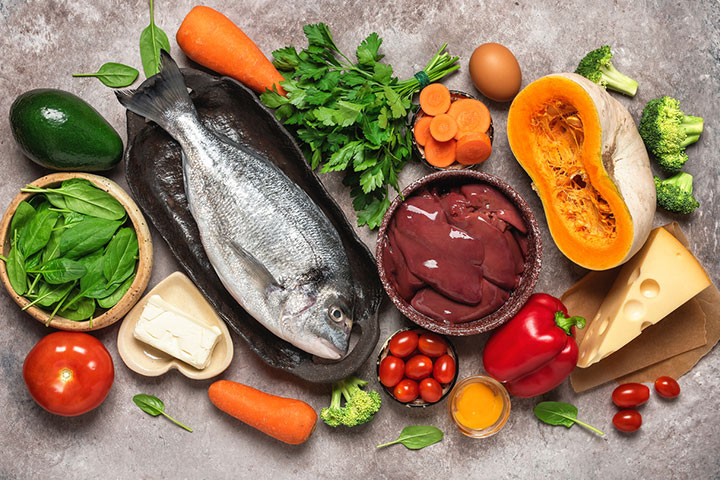
Natural Food Sources Rich In Vitamin A
One of the best ways to ensure an adequate intake of vitamin A is by incorporating natural food sources into your diet. Here are some nutrient-packed options:
| Food Source | Vitamin A Content (Per 100g) |
|---|---|
| Carrots | 8,333IU |
| Sweet potatoes | 13,218IU |
| Spinach | 9,377IU |
| Kale | 9,990IU |
| Mangoes | 1,765IU |
These natural food sources not only provide ample amounts of vitamin A but also offer other important nutrients that contribute to overall eye health.
The Benefits Of Beta-carotene In Maintaining Healthy Vision
Beta-carotene, a precursor to vitamin A, is found in various fruits and vegetables. It is converted by the body into vitamin A, which is then utilized to support healthy vision. Here are some key benefits of incorporating beta-carotene-rich foods into your diet:
- Improved night vision: Beta-carotene helps the eyes adjust to low light conditions, improving night vision and reducing the risk of night blindness.
- Protection against age-related macular degeneration (AMD): AMD is a common eye condition that affects the central part of the retina. Beta-carotene acts as an antioxidant, protecting the retina from oxidative damage, and reducing the risk of AMD.
- Reduced risk of cataracts: Cataracts occur when the lens of the eye becomes clouded, leading to blurred vision. Beta-carotene helps in preventing the formation of cataracts by combating oxidative stress.
Incorporating beta-carotene-rich foods such as carrots, sweet potatoes, and spinach into your diet can significantly contribute to maintaining healthy vision and preventing eye-related issues.

Credit: www.medicalnewstoday.com
Boosting Omega-3 Fatty Acids Intake
Boosting Omega-3 Fatty Acids Intake plays a crucial role in maintaining good eye health, which is essential for safety and ideal vision. Omega-3 fatty acids are a type of polyunsaturated fat that is known for its numerous health benefits, including reducing the risk of chronic diseases and promoting overall well-being. When it comes to eye health, omega-3 fatty acids have been found to be particularly beneficial in preventing age-related macular degeneration, dry eyes, and other vision problems.
The Importance Of Omega-3 Fatty Acids In Eye Health
Omega-3 fatty acids are important for eye health due to their anti-inflammatory properties and their role in maintaining the structure and function of the retina. The retina is the light-sensitive layer at the back of the eye that is responsible for transmitting visual information to the brain. By reducing inflammation and promoting p
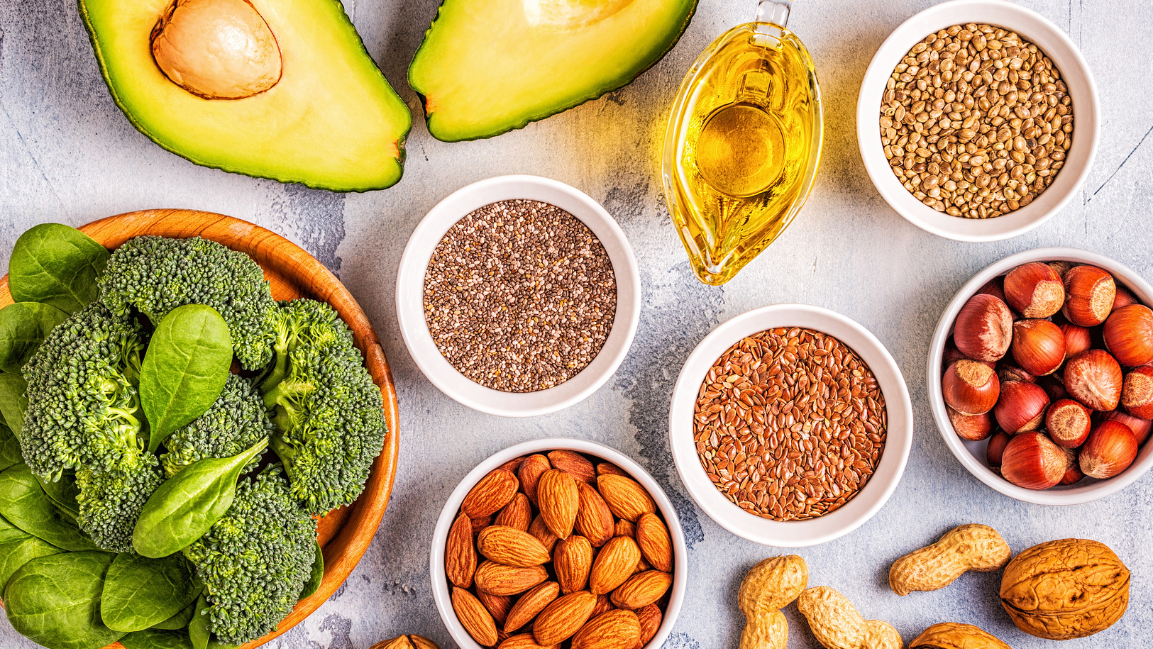
roper function of the retina, omega-3 fatty acids help to protect and maintain good vision.
Best Food Sources Of Omega-3 Fatty Acids For Improved Vision
If you are looking to improve your vision and ensure optimal eye health, incorporating foods rich in omega-3 fatty acids into your diet is essential. The following table highlights some of the best food sources of omega-3 fatty acids:
| Food Source | Omega-3 Fatty Acid Content |
|---|---|
| Fatty Fish (salmon, mackerel, sardines) | High |
| Flaxseed and Flaxseed Oil | High |
| Chia Seeds | High |
| Walnuts | Moderate |
| Soybeans | Moderate |
These foods are not only rich in omega-3 fatty acids but also provide other essential nutrients and antioxidants that contribute to overall eye health. Incorporating them into your diet can be as simple as adding flaxseed or chia seeds to your morning smoothie, enjoying a serving of fatty fish for dinner, or snacking on walnuts as an afternoon pick-me-up.
Remember, it’s important to opt for fresh and high-quality sources of omega-3 fatty acids to ensure maximum benefits. If you are unable to obtain enough omega-3 fatty acids through your diet alone, you may consider incorporating a high-quality omega-3 supplement into your routine after consulting with your healthcare professional.
Protecting Your Eyes With Lutein And Zeaxanthin
The health of our eyes is something that we often take for granted. However, with the increasing use of digital devices and exposure to harmful environmental factors, it has become crucial to prioritize our eye health. One way to do that is by incorporating lutein and zeaxanthin into our diet.
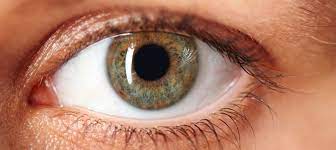
The Role Of Lutein And Zeaxanthin In Preventing Vision Loss
Lutein and zeaxanthin are natural antioxidants that play a crucial role in protecting our eyes from damage caused by harmful blue light and oxidative stress. These two carotenoids are selectively accumulated in the macula of the eye, which is responsible for sharp, central vision.
Studies have shown that lutein and zeaxanthin help in preventing age-related macular degeneration (AMD), a condition that leads to vision loss in older adults. By filtering out harmful blue light and reducing oxidative damage, these antioxidants help preserve the health of the macula and maintain clear, vibrant vision.
Foods High In Lutein And Zeaxanthin For Optimal Eye Health
Fortunately, incorporating lutein and zeaxanthin into your diet is relatively easy. Several foods are rich in these antioxidants and can help support optimal eye health.
| Foods High in Lutein | Foods High in Zeaxanthin |
|---|---|
|
|
Including these foods in your diet on a regular basis can help ensure an adequate intake of lutein and zeaxanthin, providing the necessary support for healthy eyes and preventing vision loss.
In addition to incorporating lutein and zeaxanthin-rich foods, it’s essential to maintain a well-balanced diet that includes a variety of fruits, vegetables, whole grains, healthy fats, and lean proteins. This will provide your eyes with a wide range of necessary nutrients to function optimally.
Remember, your eyes are precious, and taking small steps to protect them can make a significant difference in maintaining clear and healthy vision. So, make sure to prioritize the intake of lutein and zeaxanthin-rich foods, and keep your eyes safe and healthy for years to come.
Antioxidants: Vitamin C And E For Eye Health
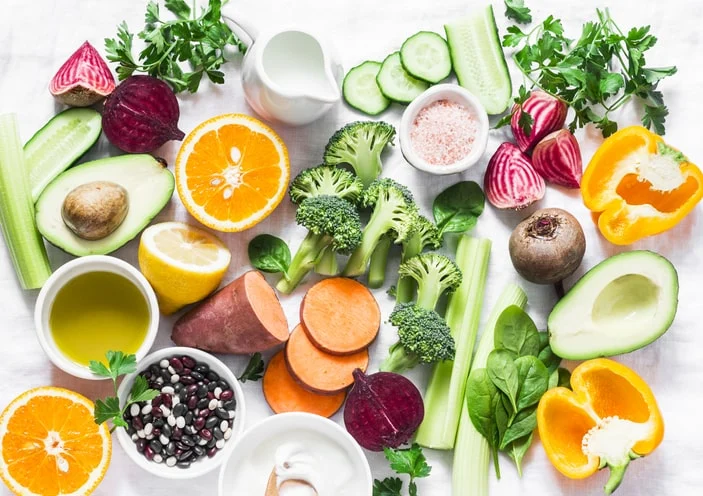
Get clear and vibrant eyes with a diet rich in antioxidants like vitamin C and E. These powerful nutrients help promote eye health, ensuring safety and ideal vision for a lifetime.
The Power Of Antioxidants In Maintaining Healthy Eyes
When it comes to maintaining healthy eyes, antioxidants play a crucial role. With their ability to combat free radicals and reduce oxidative stress, antioxidants help protect the delicate structures of the eyes from damage caused by harmful environmental factors.
Two powerful antioxidants that are particularly beneficial for eye health are Vitamin C and Vitamin E. These antioxidants work together to enhance visual function and protect against age-related eye conditions.
Foods Packed With Vitamin C And E For Improved Vision
Including foods rich in Vitamin C and E in your diet can significantly improve your overall eye health and enhance your vision. These vitamins not only provide antioxidant protection but also support the maintenance of the connective tissues and blood vessels in the eyes.
Here are some Vitamin C-rich foods that you can incorporate into your daily meals:
- Oranges and other citrus fruits
- Strawberries
- Kiwi
- Bell peppers
Vitamin E-rich foods are also crucial for eye health and can be easily added to your diet. Consider including the following options:
- Almonds
- Spinach
- Sunflower seeds
- Avocado
Adding these foods to your regular meal plan can help ensure you are getting adequate amounts of Vitamin C and E, supporting the health of your eyes.
Hydration For Healthy Eyes

Proper hydration plays a crucial role in overall health, and it is no different when it comes to maintaining healthy eyes. Hydration for healthy eyes is essential to keep them functioning optimally and to prevent various eye-related issues. In this article, we will explore the importance of adequate hydration on eye health and understand how dehydration can affect vision. Additionally, we will discuss effective ways to stay hydrated and ensure our eyes remain safe and in an ideal condition.
The Importance Of Proper Hydration On Eye Health
Adequate hydration is vital for maintaining optimal eye health. Just like the rest of our body, our eyes rely on proper hydration to function at their best. When we are properly hydrated, it helps to keep our eyes moisturized and nourished, reducing the risk of dryness and discomfort.
Moreover, hydration supports the body’s ability to flush out toxins and maintain a clear vision. It helps prevent the buildup of waste products that can impair eye function and cause various eye conditions. Therefore, keeping our bodies well-hydrated is fundamental to maintaining healthy eyes.
How Dehydration Can Affect Vision And Ways To Stay Hydrated
Dehydration poses a significant threat to our vision. When the body becomes dehydrated, it affects the eyes in several ways. Here are some of the consequences of dehydration on our vision:
- Dry eyes: Insufficient hydration leads to dry eyes, which can cause discomfort, itchiness, and blurred vision.
- Decreased tear production: Dehydration can reduce tear production, resulting in inadequate lubrication for the eyes.
- Eye strain: Lack of hydration can contribute to eye strain, leading to fatigue, headaches, and difficulty focusing.
- Increased sensitivity: Dehydration can make the eyes more sensitive to light, causing discomfort and potentially affecting visual clarity.
Staying hydrated is crucial for optimal eye health. To ensure you remain well-hydrated, try incorporating these tips into your daily routine:
- Drink plenty of water throughout the day. Aim for at least eight glasses of water, or more if you are active or exposed to dry environments.
- Include hydrating foods in your diet, such as fruits and vegetables with high water content, like watermelon, cucumbers, and oranges.
- Limit your intake of caffeine and alcohol, as they can contribute to dehydration.
- Use a humidifier in dry environments to add moisture to the air and prevent excessive evaporation of tears.
- Take regular breaks from screens and digital devices to reduce eye strain and give your eyes a chance to relax.
| Benefits of Hydration for Eye Health |
|---|
| Prevents dryness and discomfort in the eyes |
| Helps maintain clear vision by flushing out toxins |
| Reduces the risk of blurred vision and eye strain |
| Supports tear production and lubrication |
| Improves overall eye health and reduces the risk of eye conditions |
By prioritizing hydration and following these simple tips, you can help maintain ideal eye health and ensure your eyes remain safe, comfortable, and functioning optimally.
The Impact Of Sugar And Processed Foods On Your Vision
When it comes to maintaining healthy eyes, the impact of your diet cannot be overlooked. A well-balanced diet that includes essential nutrients can support optimal eye health and prevent the onset of various vision problems. However, the consumption of excessive sugar and processed foods can have detrimental effects on your eyesight. In this article, we will explore the harmful impact of sugar and processed foods on your vision and understand why it is crucial to limit their intake.

The Harmful Effects Of Excessive Sugar Intake On Eye Health
Excessive sugar consumption not only harms your overall health but can also have a negative impact on your eyes. When you consume large amounts of sugar, it can lead to a condition called glycation. This process occurs when excess sugar molecules attach themselves to proteins in your body, including the proteins in your eyes.
Glycation can have several detrimental effects on your eye health, including:
- Increased risk of developing cataracts: The proteins in your eye’s lens can become damaged due to glycation, leading to the formation of cloudy areas that affect your vision.
- Greater susceptibility to age-related macular degeneration (AMD): High sugar intake can accelerate the degeneration of the macula, the part of the eye responsible for central vision, leading to vision loss.
- Worsened symptoms of diabetic retinopathy: For individuals with diabetes, the excessive sugar in the bloodstream can exacerbate the damage to blood vessels in the retina, leading to irreversible vision loss if left uncontrolled.
Why Processed Foods May Lead To Vision Problems
The convenience and availability of processed foods often make them a staple in our diets. However, these foods are usually high in sugar, unhealthy fats, and artificial additives, which can be detrimental to our eye health.
Here are some reasons why processed foods may lead to vision problems:
- Nutrient deficiency: Processed foods are often stripped of important nutrients such as vitamins A, C, and E, which are essential for maintaining healthy vision. Without these nutrients, your eyes may become more susceptible to various eye conditions.
- Inflammation and oxidative stress: The artificial additives and unhealthy fats in processed foods can lead to inflammation and oxidative stress in your body, including your eyes. These processes contribute to the development of eye diseases and vision problems.
- High glycemic index: Processed foods, especially those high in refined carbohydrates, can cause a rapid increase in blood sugar levels. This sudden spike in blood sugar can negatively impact your eye health, as mentioned earlier.
Ensuring a well-rounded diet that includes plenty of fresh fruits, vegetables, whole grains, and lean proteins is crucial for preserving your vision. By reducing your sugar and processed food intake, you can protect your eyes from potential harm and promote long-term eye health.
Importance Of A Balanced Diet For Overall Eye Health
A balanced diet plays a crucial role in maintaining healthy eyes. Including nutrient-rich foods in your diet can promote overall eye health and reduce the risk of eye conditions. Taking care of your eyes by eating well is essential for optimal vision and eye safety.
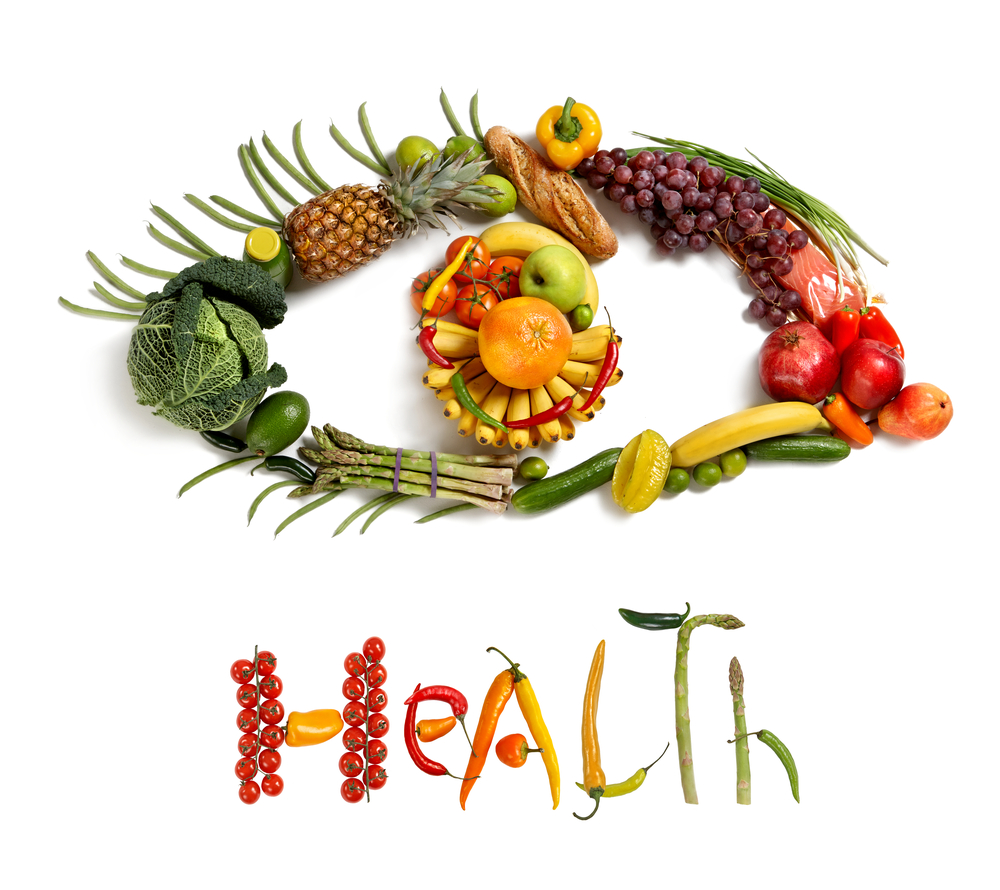
Understanding The Significance Of A Well-rounded Diet For Vision
When it comes to maintaining healthy eyes, a balanced diet plays a crucial role. Proper nutrition not only supports overall health but also ensures optimal eye function. Our eyes rely on a wide range of nutrients to maintain good vision and prevent eye diseases. In this section, we will delve into the importance of a well-rounded diet in promoting excellent eye health.
The Impact Of Macronutrients On Eye Health
Macronutrients, including carbohydrates, proteins, and fats, are essential for the proper functioning of our body, including our eyes. Each of these macronutrients serves a specific purpose in maintaining optimal eye health.
Carbohydrates For Eye Health
Carbohydrates are our body’s primary source of energy. They provide fuel not only for our body but also for our eyes. In particular, complex carbohydrates like whole grains, legumes, and fruits provide the necessary energy to the cells of the eyes, helping them function optimally. Including these nutrient-rich carbohydrates in our diet can reduce the risk of eye diseases and promote healthy eyesight.
Proteins For Eye Health
Proteins are the building blocks of our body, and they play a vital role in maintaining healthy eyes. Essential amino acids present in proteins help repair and regenerate the delicate tissues of the eyes. Foods rich in proteins, such as lean meats, eggs, dairy products, and legumes, should be incorporated into our daily diet to ensure adequate protein intake for optimal eye health.
Fats For Eye Health
Fats often receive a bad reputation, but certain types of fats are beneficial for maintaining good eye health. Omega-3 fatty acids, found in fatty fish like salmon, trout, and sardines, as well as walnuts and flaxseeds, are essential for preventing dry eyes and protecting the retina. Including these healthy fats in our diet can support proper tear production and reduce the risk of age-related macular degeneration (AMD) and other eye conditions.
Other Nutrients For Eye Health
While macronutrients are crucial, micronutrients can also play a significant role in supporting eye health. Vitamins and minerals like vitamin C, vitamin E, vitamin A, zinc, and antioxidants are essential for maintaining the overall health of the eyes. Incorporating a variety of fruits, vegetables, nuts, and seeds into our diet can provide these important nutrients, reducing the risk of eye diseases and promoting optimal vision.
Meal Planning Tips For Better Vision
When it comes to maintaining healthy eyes, a good diet can play a crucial role. By incorporating eye-healthy foods into your meal plan, you can provide your eyes with the essential nutrients they need to function optimally. In this article, we will discuss meal planning tips that focus on improving your vision and ensuring the safety and ideal health of your eyes.

Creating A Meal Plan That Incorporates Eye-healthy Foods
Creating a well-rounded meal plan is the first step towards improving your vision. By including specific foods that are rich in eye-healthy nutrients, you can support your eyes’ health and guard against potential vision problems.
Here are some key foods to include in your meal plan:
- Leafy green vegetables such as spinach and kale: These vegetables are packed with vitamins and antioxidants that can protect against age-related macular degeneration and cataracts.
- Colorful fruits and vegetables like carrots, strawberries, and bell peppers: These foods contain vitamins A and C, which are essential for maintaining good eye health and preventing vision loss.
- Fatty fish such as salmon, tuna, and mackerel: These fish are high in omega-3 fatty acids, which can help to reduce the risk of dry eyes and macular degeneration.
- Legumes like black beans, lentils, and chickpeas: Legumes are a great source of zinc, which can improve the health of your retina and lower the risk of macular degeneration.
It is important to note that while these foods are beneficial for your eyes, they should be part of a well-balanced diet. Including a variety of healthy foods can ensure that your body receives all the necessary nutrients for overall well-being.
Balancing Nutrients For Optimal Eye Health
When creating your meal plan, it is crucial to consider the balance of nutrients that promote optimal eye health. Including a variety of nutrients can help to protect your eyes from various vision problems.
Here are some essential nutrients and their food sources:
| Nutrient | Food Sources |
|---|---|
| Vitamin A | Carrots, sweet potatoes, apricots |
| Vitamin C | Oranges, strawberries, bell peppers |
| Vitamin E | Almonds, sunflower seeds, spinach |
| Omega-3 fatty acids | Fatty fish (salmon, tuna), flaxseeds, chia seeds |
| Lutein and zeaxanthin | Kale, spinach, broccoli |
| Zinc | Lean meats, legumes, nuts |
By including these nutrients in your meal plan, you can provide your eyes with the necessary building blocks for optimal eye health.
In conclusion, meal planning plays a vital role in maintaining good eye health. By incorporating eye-healthy foods and balancing essential nutrients, you can ensure the safety and ideal health of your eyes. Start incorporating these meal planning tips today for better vision and a brighter future for your eyes.
Superfoods For Superior Vision
When it comes to maintaining healthy eyes, your diet plays a crucial role. Consuming the right nutrients not only supports normal vision, but it can also contribute to overall eye health and reduce the risk of certain eye conditions. One way to give your eyes the nourishment they need is by incorporating superfoods into your daily meals. These nutrient-rich foods are packed with vitamins, minerals, and antioxidants that have been shown to support superior vision. In this article, we will explore the benefits of specific superfoods and how they can contribute to the improvement and safety of your eyes.
Exploring The Benefits Of Certain Superfoods For Vision Improvement
1. Spinach and Kale
Green leafy vegetables like spinach and kale are excellent sources of vitamins A, C, and E, as well as antioxidants like lutein and zeaxanthin. These nutrients have been associated with a reduced risk of age-related macular degeneration and cataracts. Including a handful of spinach or kale in your daily diet can provide your eyes with the necessary nutrients to maintain optimal vision.
2. Carrots
You might have heard that carrots are beneficial for eyesight, and it’s true! Carrots are rich in beta-carotene, which is converted into vitamin A in the body. Vitamin A is essential for good vision, especially in low-light conditions. Adding carrots to your meals or enjoying them as a crunchy snack can help support healthy eyes.
3. Citrus Fruits
Citrus fruits like oranges, grapefruits, and lemons are not only refreshing but also packed with vitamin C. This powerful antioxidant helps protect the eyes from damage caused by free radicals and may reduce the risk of cataracts and age-related macular degeneration. Enjoying a glass of freshly squeezed orange juice or adding citrus segments to your salads can provide your eyes with a vitamin C boost.
Adding Superfoods To Your Diet For Enhanced Eyesight
Now that we have explored the benefits of certain superfoods, it’s time to incorporate them into our diet. Here are some simple ways to add these superfoods to your meals:
- Include a handful of spinach or kale in your daily smoothies.
- Add carrots to your salads or enjoy them as a crunchy snack with hummus.
- Squeeze fresh lemon juice over your favorite dishes or enjoy a citrus fruit as a healthy dessert.
- Create vibrant and nutrient-rich salads by combining leafy greens, citrus segments, and grated carrots.
Incorporating these superfoods into your diet not only supports optimal vision but also contributes to overall health and well-being. By making simple and delicious adjustments to your meals, you can ensure that your eyes receive the essential nutrients they need to stay healthy and maintain superior vision.
Recipes For A Diet Rich In Eye-boosting Nutrients
Discover tasty recipes that are packed with eye-boosting nutrients, promoting the health and safety of your eyes. This ideal diet ensures a strong foundation for good vision and overall eye well-being.
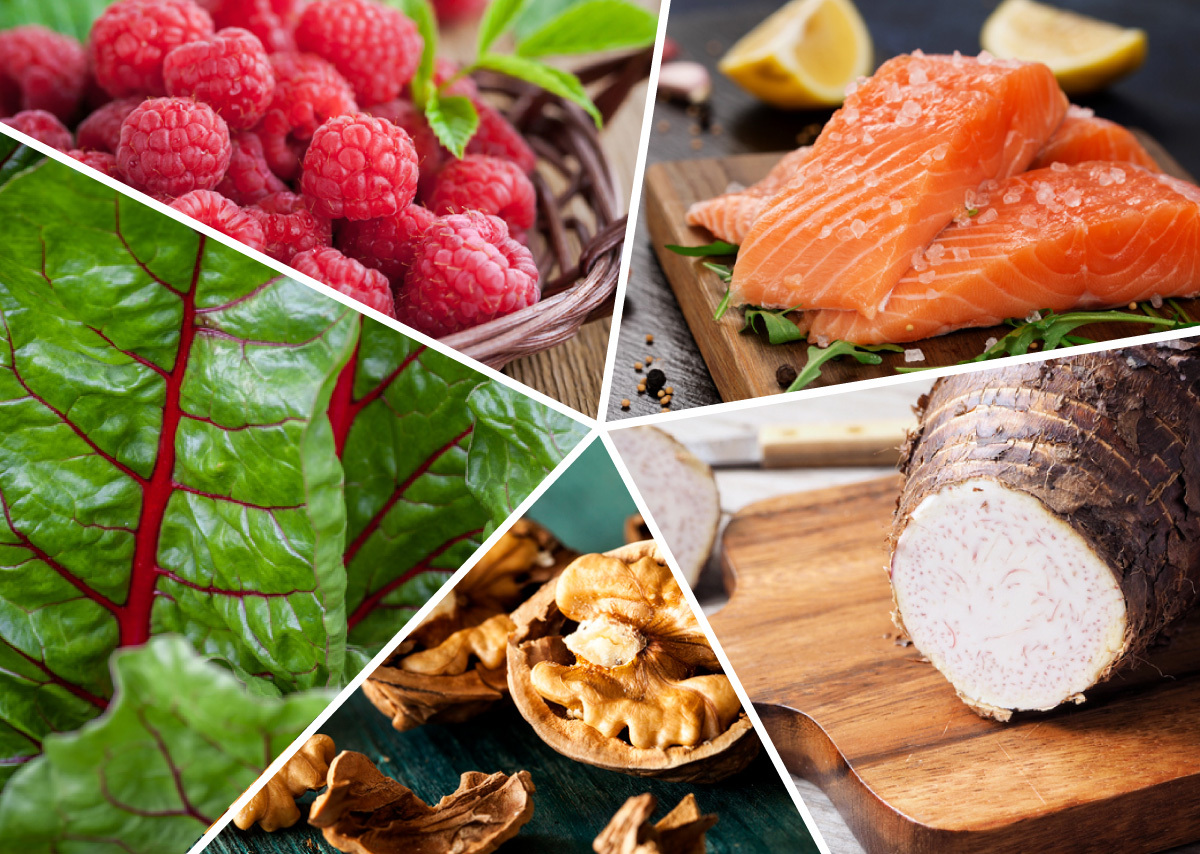
Maintaining healthy eyes requires a diet that is rich in nutrients that support eye health. Incorporating delicious and nutritious recipes into your meals can be an enjoyable way to ensure you are providing your eyes with the essential nutrients they need. When it comes to a diet that promotes healthy eyes, certain nutrients are particularly beneficial. These include antioxidants like vitamins C and E, beta-carotene, lutein, zeaxanthin, omega-3 fatty acids, and zinc. Fortunately, there are plenty of tasty recipes that can help you incorporate these eye-boosting nutrients into your meals.
Cooking Methods That Preserve The Beneficial Eye Nutrients
When cooking these eye-healthy recipes, it’s important to use methods that preserve the beneficial nutrients. Certain cooking techniques can cause the loss or degradation of these essential nutrients, reducing their effectiveness. To maximize the nutritional value of your eye-boosting recipes, consider the following cooking methods: 1. Steaming: Steaming is a gentle cooking method that helps retain the nutrients by cooking food quickly without immersing them in water. This method is particularly effective for preserving water-soluble vitamins like vitamin C. 2. Grilling: Grilling is another great option for preserving nutrients. By cooking food over an open flame or hot grill, you can retain the natural flavors and nutrients while minimizing the need for added fats or oils. 3. Stir-frying: Stir-frying involves quickly cooking food in a small amount of oil over high heat. This method helps retain the texture, color, and nutrients of vegetables, making it an excellent option for incorporating eye-healthy ingredients into your meals. 4. Raw: In some cases, consuming certain fruits and vegetables raw can be the best way to maximize their nutritional content. For example, leafy greens like spinach and kale are packed with eye-boosting nutrients and are best enjoyed fresh in salads or smoothies. Now, let’s explore some delicious and nutritious recipes that you can try at home to maintain healthy eyes.
Delicious And Nutritious Recipes For Maintaining Healthy Eyes
Spinach and Berry Salad: Combine fresh spinach leaves, antioxidant-rich berries (such as blueberries and strawberries), and a sprinkle of seeds (like pumpkin or sunflower seeds) for a refreshing and nutrient-packed salad. Drizzle with a light vinaigrette made with olive oil and lemon juice. 2. Salmon with Roasted Vegetables: Grill or bake a piece of wild-caught salmon and serve it with a side of roasted vegetables. Roasting the veggies helps retain their nutrients while adding a delicious flavor. Choose colorful vegetables like carrots, bell peppers, and Brussels sprouts. 3. Green Smoothie: Blend together a handful of spinach or kale, a ripe banana, a cup of berries, and a splash of almond milk for a nutrient-packed green smoothie. Add a tablespoon of flax seeds or chia seeds for an extra boost of omega-3 fatty acids. Remember, these recipes are just a starting point. Feel free to get creative and experiment with different ingredients to find combinations that you enjoy. By incorporating these eye-boosting recipes into your diet and using cooking methods that preserve the beneficial eye nutrients, you can support your eye health while indulging in delicious meals.
Essential Tips for Optimal Vision
Tips For Long-term Eye Health
Ensuring the health of our eyes is crucial for maintaining clear vision and preventing potential eye problems. While genetics and age play a role in eye health, there are several proactive steps you can take to support long-term vision. This section will explore healthy lifestyle habits that support long-term vision and the importance of regular eye check-ups and professional care.
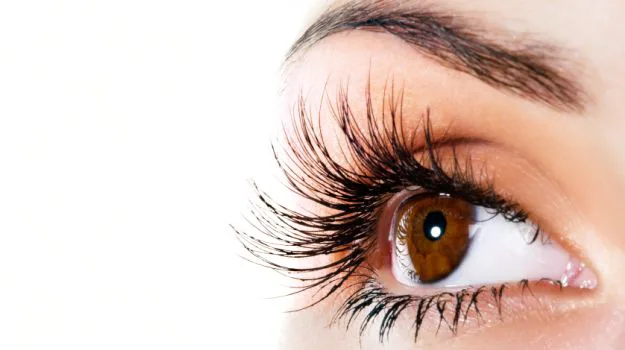
Healthy Lifestyle Habits That Support Long-term Vision
Maintaining healthy lifestyle habits can significantly contribute to the overall health of our eyes. Here are some key habits to incorporate into your daily routine:
- Eat nutrient-rich foods: A balanced diet is essential for good eye health. Foods rich in omega-3 fatty acids, vitamins A, C, and E, and zinc can help protect against age-related macular degeneration (AMD) and cataracts. Include foods like dark leafy greens, fish, citrus fruits, nuts, and whole grains in your diet.
- Stay hydrated: Drinking an adequate amount of water throughout the day helps prevent dry eyes, which can cause discomfort and vision problems. Aim to drink at least eight glasses of water daily.
- Protect your eyes from harmful UV rays: When outdoors, wear sunglasses that provide 100% UV protection. Prolonged exposure to UV rays can increase the risk of cataracts and macular degeneration.
- Give your eyes regular breaks: Extended periods of screen time can strain your eyes. Follow the 20-20-20 rule – every 20 minutes, take a 20-second break and look at something 20 feet away. This allows your eyes to rest and prevents eye fatigue.
- Quit smoking: Smoking not only damages your overall health but also increases the risk of eye diseases like cataracts and AMD. If you smoke, consider quitting to protect your eyes.
Regular Eye Check-ups And The Importance Of Professional Care
While practicing healthy lifestyle habits is essential, regular eye check-ups and professional care are equally important. Here’s why:
- Evaluation of vision changes: Regular eye exams allow optometrists to evaluate any changes in your vision. They can detect vision problems early on and provide appropriate treatment.
- Early detection of eye diseases: Eye exams can help identify eye diseases like glaucoma, diabetic retinopathy, and AMD in their early stages. Detecting these diseases early gives you a better chance of managing or slowing their progression.
- Prescription updates: Your visual needs can change over time. Getting regular eye check-ups ensures that your prescription eyeglasses or contact lenses are up to date, providing you with optimal clarity and vision.
- Professional advice and guidance: Optometrists can provide professional advice and guidance on maintaining good eye health. They can offer tips specific to your needs and address any concerns you may have.
Remember, taking care of your eyes is a lifelong commitment. By adopting healthy lifestyle habits and scheduling regular eye check-ups, you can ensure the long-term health and longevity of your precious vision.
Frequently Asked Questions For Good Diet For A Healthy Eyes, Safety And Ideal Eyes
What Are The Best Foods For Healthy Eyes?
A well-balanced diet rich in leafy greens, fish, citrus fruits, and nuts can promote good eye health.
How Can I Protect My Eyes From Digital Strain?
To protect your eyes from digital strain, take regular breaks, adjust screen brightness, and use the 20-20-20 rule: look away every 20 minutes at something 20 feet away for 20 seconds.
Which Vitamins Are Essential For Maintaining Healthy Eyes?
Vitamins A, C, and E, as well as zinc and omega-3 fatty acids, are important for maintaining optimal eye health.
Can Eye Exercises Improve My Vision?
While eye exercises can help improve muscle strength, they may not directly improve vision. Regular eye check-ups are recommended for any vision concerns.
Are Carrots Really Good For My Eyes?
Carrots contain beta-carotene, which is converted to vitamin A in the body and is essential for good eye health.
How Does A Healthy Diet Affect My Overall Eye Health?
A healthy diet can help prevent eye conditions like cataracts and macular degeneration, while also reducing the risk of obesity and diabetes, which can lead to vision problems.
Can Smoking Affect My Eyesight?
Yes, smoking can increase the risk of various eye diseases, including cataracts, macular degeneration, and dry eye syndrome.
What Role Does Hydration Play In Maintaining Healthy Eyes?
Staying properly hydrated can prevent dry eyes and keep your eyes lubricated, reducing discomfort and potential vision issues.
Are There Any Specific Foods I Should Avoid For Good Eye Health?
Limiting sugary snacks, processed foods, and foods high in saturated fats can help protect your eyes and overall health.
How Often Should I Have My Eyes Checked?
It is recommended to have a comprehensive eye exam every 1-2 years, depending on your age and any existing eye conditions. Regular check-ups can detect issues early and prevent further damage.
Conclusion
To maintain a healthy vision, it is crucial to adopt a good diet that focuses on eye health. By incorporating foods rich in nutrients like vitamins A, C, E, and omega-3 fatty acids, we can nourish and protect our eyes from various eye conditions.
Additionally, drinking plenty of water and avoiding smoking can further contribute to maintaining optimal eye health. Remember, a well-balanced diet not only benefits your overall health but also safeguards your precious vision for years to come. Start making nutritious choices today!

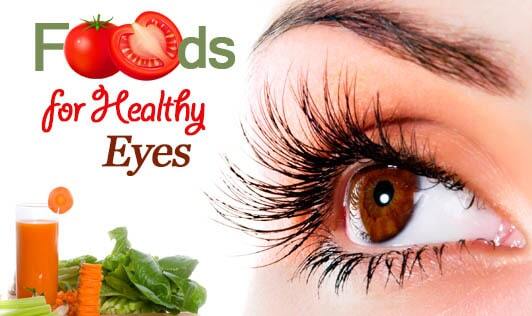

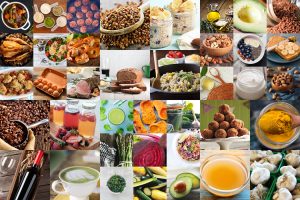



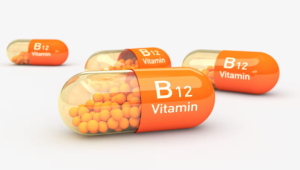




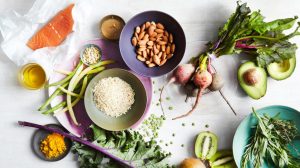
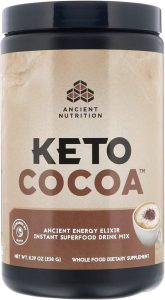

Be First to Comment